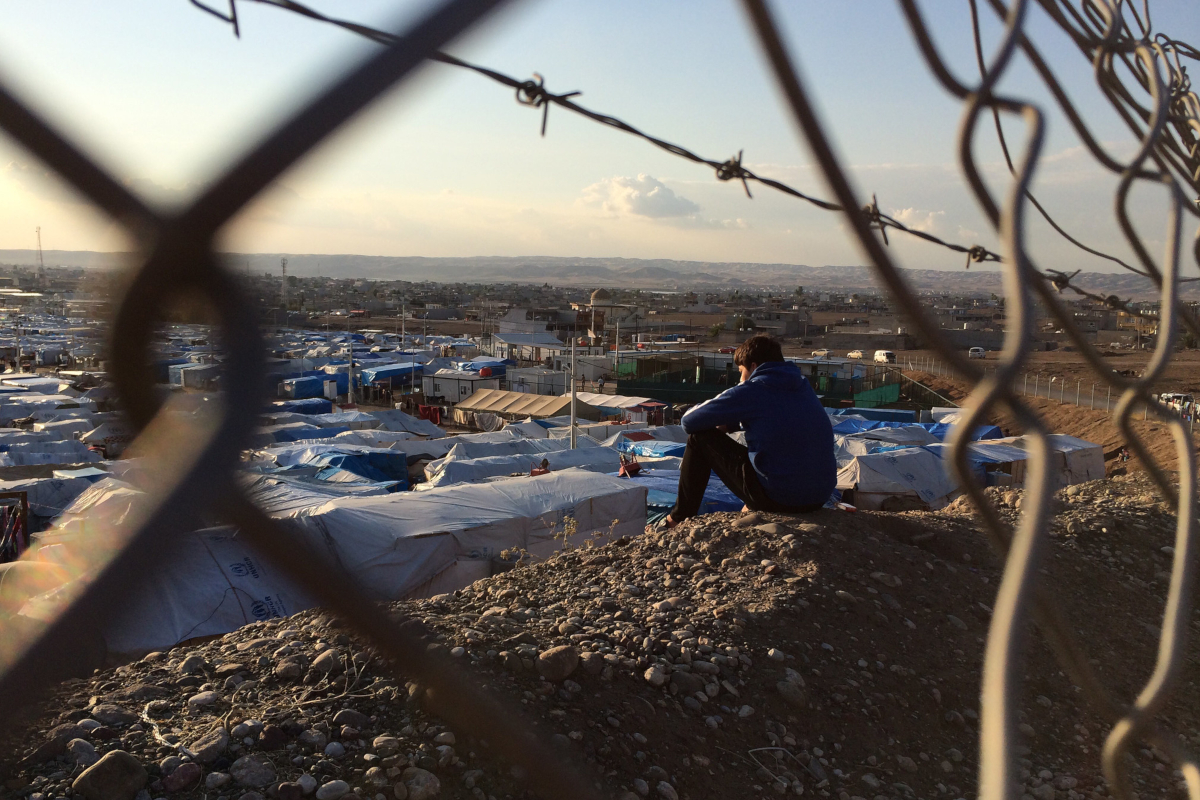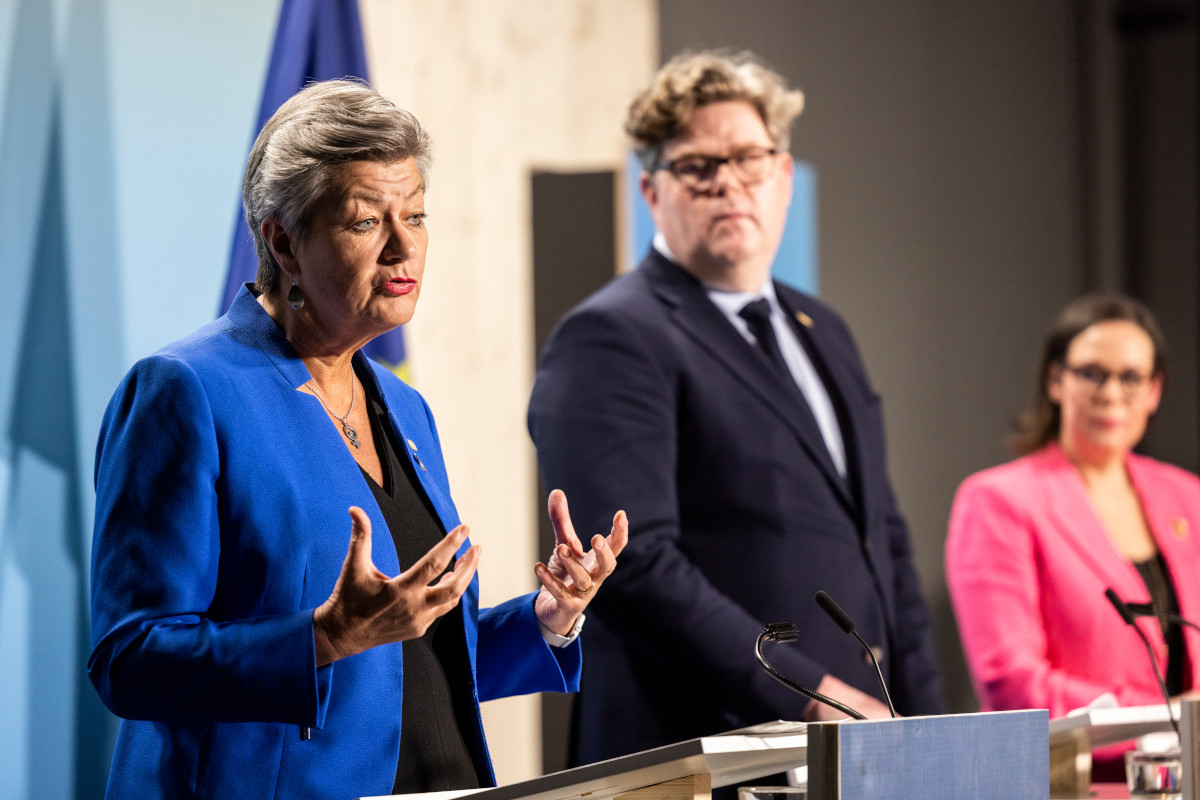EU seeking informal agreement to boost deportations to Iraq
Topic
Country/Region
11 October 2023
The EU is pushing for a “non-binding instrument” with Iraq in order “to increase Iraq’s cooperation on readmission” – that is, acceptance of deportations.
Support our work: become a Friend of Statewatch from as little as £1/€1 per month.

Kawergosk refugee camp in Iraqi Kurdistan. Image: EU Civil Protection and Humanitarian Aid, CC BY-NC-ND 2.0
The plan is being pushed ahead by the Council and Commission (pdf) despite acknowledgement that the Iraqi government announced in March this year that “it denounced the previous policy of general non-acceptance of non-voluntary returns and… committed to start cooperating on all returns.”
A “non-binding agreement” would not require the scrutiny or consent of the European Parliament, unlike a formal readmission agreement, and would come on top of the existing EU-Iraq Partnership and Cooperation Agreement, as well as the threat of visa sanctions against Iraq, which have been under discussion since 2021 when it was determined that the country’s cooperation with deportations was “insufficient”.
The Partnership and Cooperation Agreement includes clauses obliging both sides “to readmit their illegal migrants,” while the possibility of the EU making visa issuance more complex and time-consuming for Iraqi nationals remains under discussion in the Council.
The document refers to “extensive and continuous outreach” from the EU “towards the Iraqi authorities at political and technical level,” which led to the government’s March announcement. The plan to put renewed pressure on Iraq was drawn up through the secretive MOCADEM structure that is intended to coordinate the EU´s border externalisation efforts.
Following the decision by the Iraqi authorities to start accepting forced returns from the EU, the country’s government “approached several Member States offering them to conclude arrangements detailing cooperation on return and readmission. Several such arrangements have been concluded with individual Member States and some are under negotiation or under consideration,” says the Council document.
However, the Council and Commission see an added benefit in a dedicated EU-Iraq agreement, noting that it would provide “clarity, transparency and predictability to the process to both Parties.”
It would also offer the opportunity for EU member states to play pick-and-mix with the law, notes the Council document:
“The Commission explained that the NBI [non-binding instrument] should reflect at least the most advantageous standards in the bilateral arrangements of the Member States. The EU level NBI should not replace the bilateral arrangements. The EU level NBI and bilateral arrangements would be complementary in nature. The existing and those yet to be concluded bilateral arrangements between Iraq and Member States may further be used. At the same time all Member States may apply the EU level NBI to foster returns, where appropriate.”
The Commission hopes to include in the NBI, amongst other things, “the acceptance of charter flights, and the timely issuance of landing permits”; “a political commitment to work towards a substantial reduction of the backlog of readmission cases”; and “upon Iraq’s request, a reference to the EU’s support for sustainable reintegration.”
Reintegration support may come in the form of financial aid to deported individuals, along with psychological or other forms of assistance, but the Council does not think it should be included by default:
“…in case reintegration-related provisions are included in the NBI, only general lines on EU policy in this respect should be incorporated. The NBI should not establish obligations on Members States in this respect. The EU should clearly indicate that reintegration support is not a prerequisite for implementing actual or future returns. The obligation to readmit own nationals remains unconditional.”
Even if an informal agreement is concluded, it is practical cooperation that the Council values most highly. The document notes that the possibility of visa sanctions will remain on the table, and that a discussion on introducing them would take place if Iraqi cooperation is “deemed to be insufficient by the end of 2023.”
Data compiled by Statewatch shows that between 2006 and 2021, deportation operations coordinated by Frontex led to the deportation of 352 Iraqi nationals. The number deported in operations coordinated by member states is likely to be substantially higher.
Two decades after the US-led invasion of Iraq – supported by EU member states Italy, the Netherlands, Spain, Hungary, Lithuania, Slovakia, Poland, Romania, Denmark, Bulgaria, the Czech Republic, Latvia, Estonia and of course the UK, as well as Schengen states Norway and Iceland – people in Iraq continue to face political turmoil and serious human rights abuses.
Documentation
- A non-binding instrument on return and readmission between the EU and Iraq − Authorisation to negotiate an NBI (Council doc. 13551/23, LIMITE, 4 October 2023, pdf)
Our work is only possible with your support.
Become a Friend of Statewatch from as little as £1/€1 per month.
Further reading

EU: Tracking the Pact: Council reports on externalisation efforts in Iraq and Nigeria
Two documents obtained by Statewatch assess the state of implementation of the Migration Action Plans approved by the European Council for Iraq and Nigeria. There is little or no attention or funding devoted to establishing legal migration pathways, with the focus instead on continued externalisation of border controls and deportations.

EU to pile pressure on Iraq to cooperate with deportations
The EU is aiming to convince Iraqi authorities to withdraw their opposition to accepting deportations of Iraqi nationals, establish “smooth cooperation” on readmission and integrate “return, readmission and cooperation” into broader EU-Iraq cooperation on migration. This initiative fits within a wider punitive mechanism that includes monitoring cooperation on readmission by partner countries to promote the “external dimension of migration management”.

EU: Tracking the Pact: Migration action plans on Afghanistan, Bosnia and Herzegovina, Iraq and Nigeria
Eight draft action plans for cooperation with non-EU states on migration and border control were approved by the European Council in October. Documents dealing with Afghanistan, Bosnia and Herzegovina, Iraq and Nigeria, published here, show a chosen path of intensified externalisation of EU border management, and very little commitment to legal migration pathways.
Spotted an error? If you've spotted a problem with this page, just click once to let us know.

